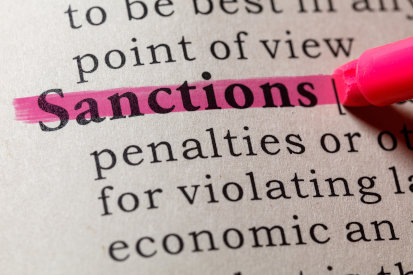In response to the 9/11 terrorist attacks, the United Nations Security Council (UNSC) adopted Resolution 1373 which requires Member States to implement targeted financial sanctions against persons involved in terrorist activities.
As Australia is a UN Member State, it implements UNSC sanctions by incorporating them into Australian law.
Explore the key considerations as outlined by DFAT.
Provisions under Australian law
Australia can designate a person or entity who commits, attempts to commit, participates in or facilitates the commission of, terrorist acts.
The effect of being designated is that it is an offence to:
- Provide assets to designated persons or entities.
- Deal with the assets of designated persons or entities.
Restrictions on providing assets to designated persons or entities
It is prohibited to directly or indirectly make an asset available to a designated person or entity.
An “asset” includes an asset or property of any kind, whether tangible or intangible, movable or immovable. For example, this could include the trade of goods and services, or the buying and selling of shares.
Restrictions on dealing with assets of designated persons or entities
It is prohibited to use or deal with an asset, or allow or facilitate another person to use or deal with an asset, that is owned or controlled by a designated person or entity.
Essentially, it is required to freeze such assets so that they cannot be used or dealt with, moved or sold. You are also required to inform the Australian Federal Police as soon as possible.
Who is considered a designated person or entity?
The Consolidated List contains the names of designated persons and entities who are subject to targeted financial sanctions. Those listed may be Australian citizens, foreign nationals, or residents in Australia or overseas.
Current examples include:
- Entity: Industrial Solutions (Syria) – a front company for the acquisition of sensitive equipment for the ‘Scientific Studies and Research Centre’, which purchases equipment for the Syrian military.
- Individual: Serhiy Yurievich KOZYAKOV (Ukraine) – Former Minister of Justice and former Head of the “Central Electoral Commission” of the self-proclaimed “People’s Republic of Luhansk”, where he was responsible for organising the illegal elections of 2 November 2014.
Due diligence requirements and consequences of non-compliance
Australian businesses and individuals are required to conduct due diligence, including checking the Consolidated List, to ensure that they do not deal with designated persons or entities.
It is a serious criminal offence to contravene a sanctions measure. The penalties include up to ten years in prison for individuals and substantial fines for individuals and bodies corporate.
You should check the Consolidated List before undertaking a proposed business activity with a foreign associate to ensure you do not contravene an Australian sanctions law.
Sanctions permits
In some circumstances, it may be possible to obtain a sanctions permit to allow an activity related to a person or entity on the Consolidated List that would otherwise be prohibited by an Australian sanctions law.
The Consolidated List identifies the sanctions regime for each listing. You can then check the relevant regime to identify the criteria required to apply for a sanctions permit.



